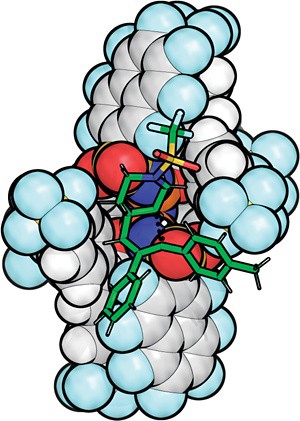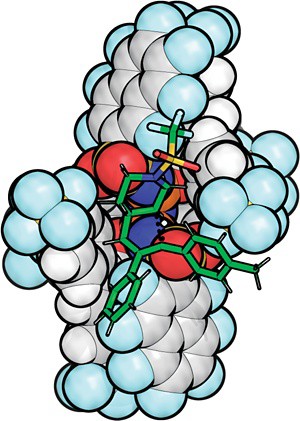
 |
Researchers in Matthew S. Sigman’s group at the University of Utah, K. N. Houk’s group at the University of California, Los Angeles and Hosea M. Nelson’s group at the California Institute of Technology have confined a vinyl carbocation within a bulky catalyst, and have now shown they can get it to insert itself into a carbon-hydrogen bond in an enantioselective manner.
Now that chemists know these intermediates can be harnessed, Matthew Sigman says, they can be creative about what kind of molecules they make with this type of reaction. Read the full article here originally published December 8, 2022 in C&EN. Read more about Sigman Lab and their research. |
Credit: Science
Confined to an organic catalyst (space-filling model), this vinyl carbocation substrate (stick model) is poised to react stereoselectively. |
